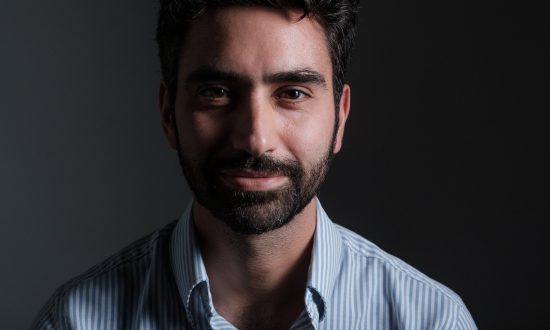Dr. Mario Herane is an accomplished leader in higher education, with a notable career spanning over 17 years in educational leadership, EdTech, technology management and operational excellence. Currently serving as the Vice President of Global Affairs and Development at Universidad Mayor in Chile and the U.S., he has spearheaded significant initiatives of institutional development across the globe. Dr. Herane’s academic credentials include a Doctorate in Business Administration from the University of Liverpool, an MBA for the University of Florida, and a Master’s in Finance for Florida International University, supplemented by professional development at renowned institutions like Harvard Kennedy School, MIT, Hasso Plattner Institute, and Stanford University. His experience also encompasses roles such as the Director of Online Learning at Universidad Mayor and Founder of Nexus University. Dr. Herane’s work is distinguished by his commitment to leveraging technology and strategic planning in creating innovative and inclusive educational environments.
The 21st century heralds an unprecedented transformation in education, driven by advancements in Artificial Intelligence (AI) and Educational Technologies (EdTech). This transformative shift is steering education away from a generalized approach to a more personalized, learner-centered model, significantly enhancing educational effectiveness and engagement.
AI, at the forefront of this change, leverages vast amounts of data regarding learners’ skills, existing knowledge, and preferences. It enables the construction of adaptive learning paths, ensuring that each student’s journey is not just unique but evolves in real-time with their progression. This paradigm shift marks a substantial leap from traditional education methodologies, promising more effective and engaging learning experiences.
Globally, various regions are adopting and adapting this innovative approach to education. Singapore, a leader in integrating emergent technologies, focuses on adult education and reskilling to meet the demands of a rapidly changing job market. Their proactive approach serves as a model for other countries, demonstrating the viability of continuous education as a tool for workforce development.
In the United States, Western Governors University (WGU) exemplifies the flexibility and accessibility that technology-infused education offers. WGU’s competency-based education model, supported by EdTech, enables students to progress at their own pace, demonstrating mastery of subjects before moving forward. This approach is particularly advantageous for adult learners who must often balance educational pursuits with other life commitments.
In Latin America, educational institutions are working to overcome regulatory constraints to offer more flexible educational paths. These efforts include shortening program lengths, increasing flexibility, recognizing prior experience, and incorporating certifications into educational experiences. These adaptations reflect a growing trend toward diversifying education to cater to a range of learner needs and contexts.
The evolving concept of Education as a Service (EAAS) embodies the future of learning. In this model, education is not a one-time endeavor but an ongoing service that adapts to the learner’s changing needs, goals, and life stages. It envisions an educational system where individuals continuously tailor their learning journey, selecting courses and experiences in alignment with their career aspirations and personal interests.
This global movement towards a personalized, technology-driven educational experience is redefining learning as a lifelong journey. From Asia to the Americas, educational institutions are breaking free from traditional molds, acknowledging that the workforce of the future requires diverse skills and learning approaches.
As the educational landscape evolves, so does the role of educators. They are transitioning from traditional roles as knowledge conveyors to facilitators and guides in personalized learning journeys. Utilizing technology, educators can now understand each student’s unique needs better and guide them through a tailored educational experience. This shift necessitates that educators prepare for new roles, requiring new tools and skills to be effective in these changing contexts.
The challenges facing educational institutions in this transition are manifold. Integrating AI and EdTech into curricula and infrastructure must be done ethically, effectively, and in a way that is accessible to all students. Institutions must consider various key factors, including the ethical implications of data use, the quality of digital content, the training and support of faculty, and ensuring equitable access to technology for all learners.
As we stand on the cusp of this educational revolution, the potential of AI and EdTech to transform learning is immense. These technologies promise a future where education is not a rigid path but a dynamic, personalized journey, continuously aligning with individual aspirations and the needs of a rapidly changing world.
However, readiness to embrace this change varies, presenting both opportunities and challenges for learners, educators, and institutions. For learners, the opportunities lie in accessing tailored education that caters to their unique needs and schedules. For educators, the challenge is to adapt to a role that is more facilitative and less directive, necessitating continual professional development. For institutions, the challenge lies in integrating these technologies in a manner that benefits all students, regardless of their background or abilities.
In this new era of education, the opportunities extend beyond formal education institutions. Non-traditional education providers, including corporations and online platforms, are also playing an increasingly significant role in delivering personalized learning experiences. These entities offer courses, certifications, and learning experiences that complement traditional educational pathways, providing learners with additional avenues for growth and skill development.
Furthermore, the integration of AI and EdTech in education holds promise for addressing longstanding challenges in education, such as the achievement gap and educational inequality. By offering personalized learning experiences, these technologies can help cater to diverse learning styles and needs, potentially leveling the playing field for students from different backgrounds.
The future of education, with its focus on personalization and lifelong learning, also aligns well with the trends in the global economy and the labor market. As job requirements continually evolve, the need for ongoing skill development and adaptation becomes critical. The use of personalized learning paths can help individuals stay relevant in their careers and adapt to changing economic landscapes.




